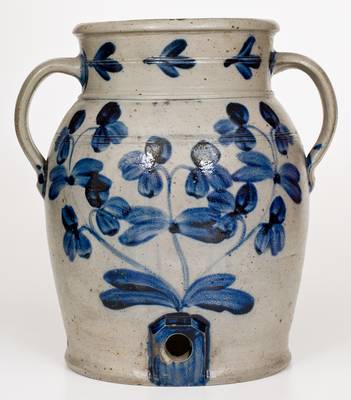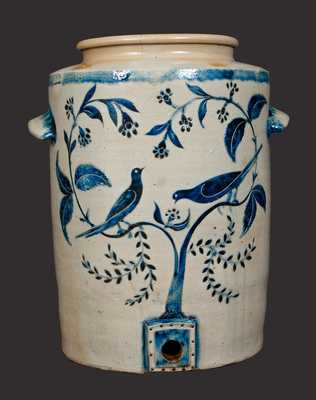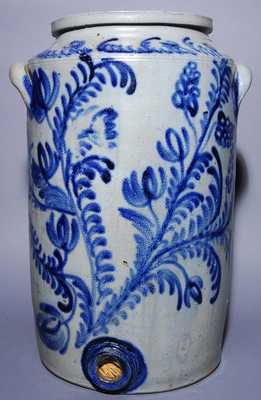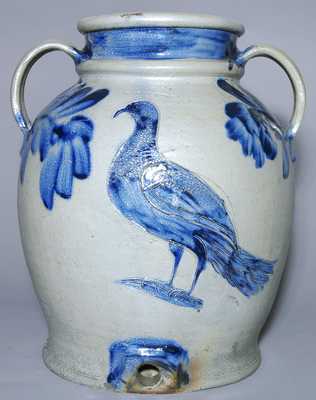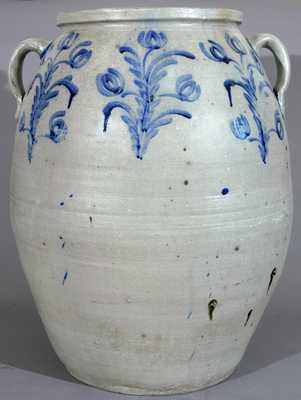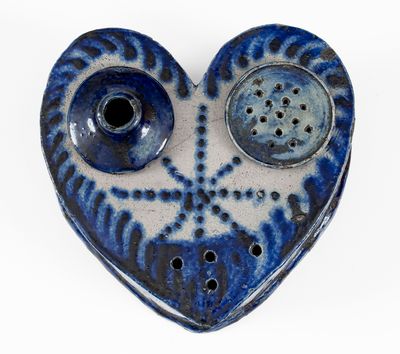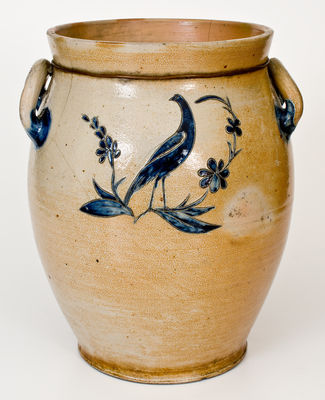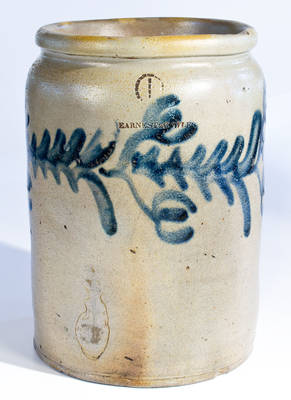Extremely Rare and Important Three-Gallon Stoneware Jar with Incised Decoration, Inscribed "H.R. Marshall / Maker / Baltimore / 1822," Hugh Robbins Marshall, Baltimore, MD, 1822, ovoid jar with semi-squared rim and applied tab handles, decorated with an incised and cobalt-highlighted flourish related to antecedent Manhattan motifs. Brushed cobalt highlights surrounding handles. Underside incised with the signature, "H.R. Marshall / Maker / Baltimore / 1822." Hugh R. Marshall learned the potter's trade in Baltimore from Thomas Morgan and briefly conducted his own pottery on Liberty Street circa 1822. During this time, it is likely that Marshall was operating at the shop of William Amoss, while Amoss was in Richmond, Virginia tending to the estate of his deceased brother, the Baltimore and Richmond potter, Thomas Amoss. Marshall was later associated with Elisha Parr's pottery on Pitt Street. Among the rarest Southern or Mid-Atlantic maker's marks that we are aware of, with roughly five intact pieces bearing this stamp known. Marshall has gained notoriety in recent years with the discovery of a pottery he established in Fredericksburg, Virginia, in 1831. This site, which was also occupied by the Cornwall, NY-trained potter, Francis Hamilton Bell, yielded sherds bearing the stamp, "H.R. MARSHALL / Fred'g, Va." Additionally, later sherds excavated at the Rockbridge Baths Pottery in Rockbridge County, Virginia bearing the incised inscription, "Hugh Marshall / Factor" and "Hugh Marshall / Manufactor" indicate his involvement in a third operation. Recent research also indicates Marshall operated a pottery in Lynchburg, VA. Together, this evidence suggests that Marshall was a highly-active and possibly influential potter, despite a paucity of signed work. To our knowledge, this jar is the only surviving piece of hand-signed stoneware produced by Marshall. The style of signature is closely-related to that seen on pieces made by his Baltimore contemporaries, William Morgan and Thomas Amoss of Pitt Street. Among the rarest examples of Baltimore stoneware known. Literature: Illustrated and discussed in Kille, "Distinguishing Marks and Flowering Designs: Baltimore's Utilitarian Stoneware Industry," Ceramics in America 2005, pp. 98, figs. 7-8. Broken and reglued with professional restoration. 1 1/2" glazed-over base chip.







